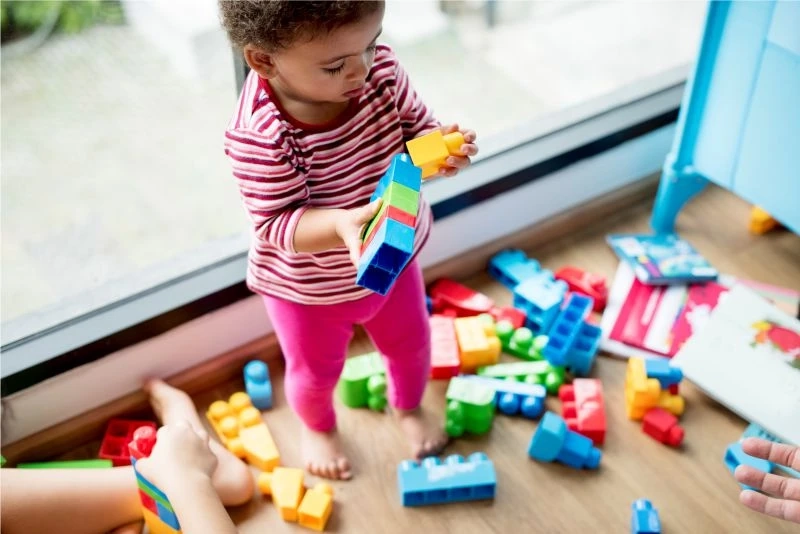Play is an essential aspect of early childhood education as it provides children with opportunities to learn and develop social, emotional, cognitive, and physical skills. Here are some reasons why play is crucial for young children from schools in south Kolkata:
Development of Social Skills: Play allows children to interact with others, take turns, share toys, and engage in cooperative activities. These experiences help children develop social skills such as communication, collaboration, negotiation, and empathy. Through play, children from schools in Garia learn how to interact with others in a positive and productive way.
Emotional Development: Play provides children with a safe and supportive environment to explore their emotions, express themselves, and learn to regulate their emotions. It can also help children develop self-confidence and resilience.
Cognitive Development: Play encourages children to use their imagination, creativity, and problem-solving skills. It also promotes language development, memory, attention, and spatial reasoning. . It also helps to develop their imagination, creativity, and curiosity.
Improves Language Skills: Play provides opportunities for children at schools in Garia to practice their language skills through conversations, storytelling, and role-playing.
Physical Development: Play helps to develop gross motor skills such as running, jumping, and throwing, as well as fine motor skills such as gripping and manipulating objects. Play also helps children develop their balance, coordination, and body awareness.
Promotes Emotional Development: Play provides a safe space for children to express their emotions and develop their emotional intelligence. Through play, children learn how to regulate their emotions and empathize with others.
Builds Confidence and Self-esteem: Play allows children to take risks, try new things, and build confidence in their abilities. It also helps them to develop a sense of accomplishment and self-worth.
Fosters Imagination and Creativity: Play provides opportunities for children from schools in south Kolkata to use their imaginations and be creative. It encourages them to think outside the box and explore new possibilities.
Develops Problem-solving Skills: Play provides opportunities for children to solve problems and think critically. It allows them to learn from their mistakes and develop resilience.
Enjoyment and Motivation: Play is enjoyable and motivates children to learn, explore, and discover. It creates a positive learning environment that fosters a love of learning. It also helps to reduce stress and promote overall wellbeing.
Prepares Children for School: Play provides a foundation for learning and prepares children for success in school. It helps to develop the skills and knowledge that they will need to succeed academically and socially.
At one of the best pre primary schools in Kolkata, play is an integral part of early childhood education, and it provides children with numerous opportunities to learn and grow. Teachers, parents, and caregivers encourage and facilitate play-based learning experiences to support children's holistic development.
Different types of play in early childhood
Play is an essential activity in early childhood that helps children develop important skills and abilities, including physical, social, emotional, and cognitive skills. There are several different types of play that children engage in during their early years, including:
Exploratory Play: This type of play involves children exploring and experimenting with their environment using their senses, such as touch, taste, smell, and sight. It helps children develop their curiosity, creativity, and problem-solving skills.
Pretend Play: Pretend or imaginative play involves children creating their own scenarios, characters, and stories. It helps children develop their social, emotional, and cognitive skills by allowing them to practice communication, empathy, and perspective-taking.
Constructive Play: This type of play involves children using materials, such as blocks, puzzles, and Legos, to create structures, designs, and inventions. It helps children develop their fine motor skills, spatial awareness, and problem-solving abilities.
Physical Play: Physical play involves children engaging in activities that require movement, such as running, jumping, climbing, and playing sports. It helps children develop their gross motor skills, coordination, balance, and physical fitness.
Social Play: Social play involves children interacting with others, such as playing games, sharing toys, and taking turns. It helps children develop their social skills, such as communication, cooperation, and conflict resolution.
Games with rules: These are structured games that involve following a set of rules or guidelines, such as board games or card games. This type of play helps children develop their social skills, problem-solving, and cognitive abilities.
Each type of play provides unique benefits to children's development and is an essential aspect of early childhood education at the best pre primary schools in Kolkata.


